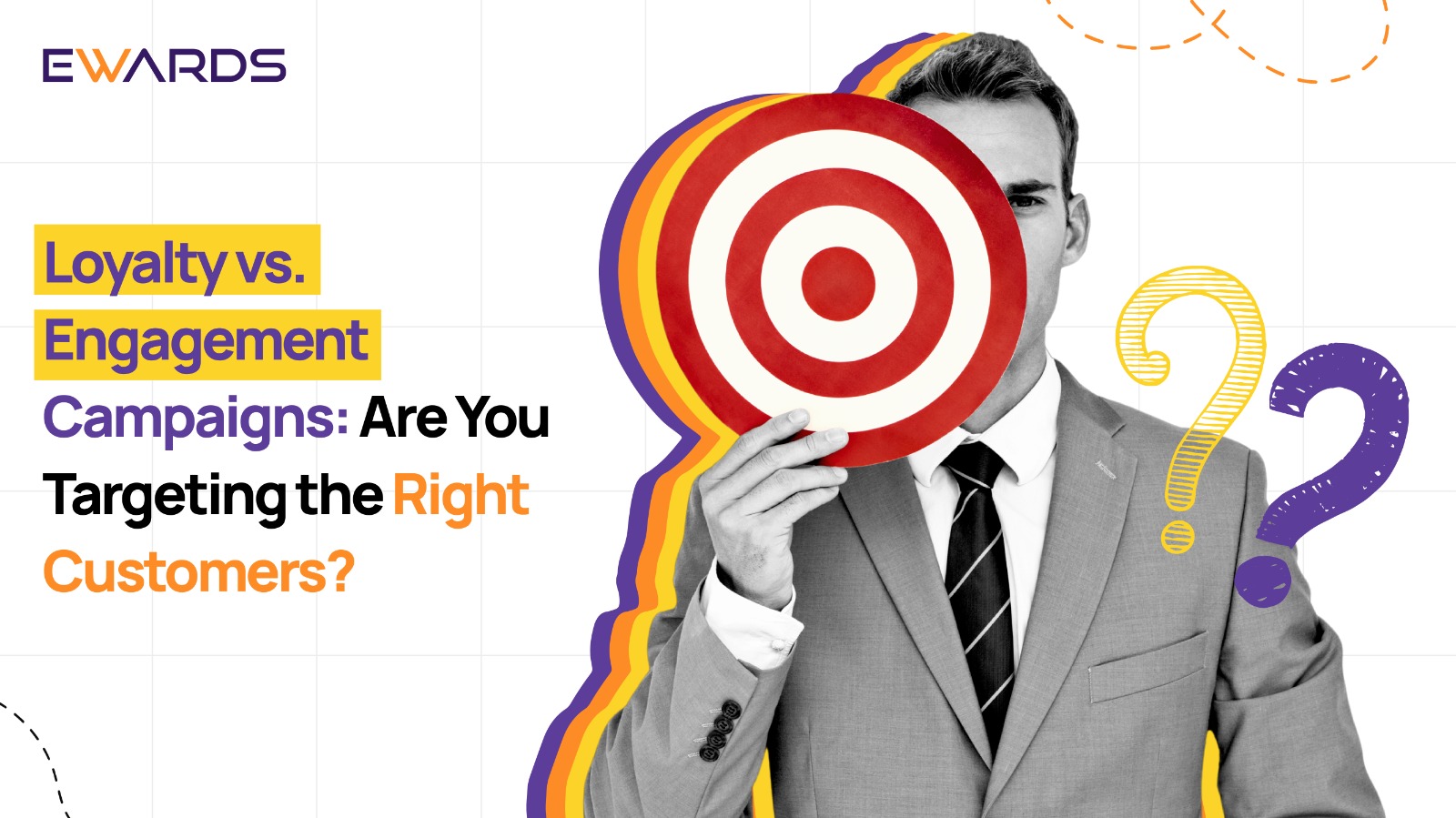
Picture this: your marketing engine is running full throttle, driving consistent results. But what if it could deliver 15% more revenue with a simple shift in strategy? According to McKinsey (2023), misclassified campaigns could be costing you significant growth opportunities. In a world where personalized marketing is key, knowing whether your campaign is focused on loyalty or engagement can make all the difference.
Core Differences Between Loyalty and Engagement Campaigns
Explore the key differences between Loyalty Campaigns and Engagement Campaigns to find out if you are targeting the right people.
1. Primary Objectives
- Loyalty Campaigns: These campaigns are designed to deepen customer relationships by encouraging repeat purchases, increasing loyalty program participation, and driving point redemption. According to Bain & Company, increasing customer retention rates by just 5% can boost profits by 25% to 95%.
- Example: “Earn double points this weekend!”
- Engagement Campaigns: These campaigns aim to foster emotional connections, build brand awareness, and drive customer interactions beyond immediate sales. Research from Harvard Business Review reveals that emotionally connected customers have a 52% higher lifetime value compared to merely satisfied ones.
- Example: “Discover the story behind our new collection.”
2. Content Focus
- Loyalty Campaigns: The content here revolves around point earning, exclusive rewards, and tier advancements, offering tangible benefits that reward customers’ loyalty.
- Example: “As a Gold Tier member, enjoy early access to our upcoming sale.”
- Engagement Campaigns: These campaigns use storytelling, event invitations, product launches, and feedback requests to create a deeper bond with customers by focusing on the brand’s values and mission.
- Example: “Join our live webinar on sustainable fashion.”
3. Call-to-Action (CTA)
- Loyalty Campaigns: The CTAs are clear, transactional, and focused on driving immediate action related to loyalty points and rewards.
- Examples: “Redeem points now,” “Upgrade to Gold Tier.”
- Engagement Campaigns: The CTAs are designed to foster interaction and participation, emphasizing ongoing engagement rather than immediate transactions.
- Examples: “Explore our new arrivals.” “Share your thoughts.”
Why Does This Distinction Matter?
Clearly distinguishing between loyalty and engagement campaigns can increase your marketing ROI by up to 23% (Gartner, 2023). Here’s why:
- Higher Engagement Rates: Customers receive tailored messages that align with their current relationship with your brand.
- Better Customer Retention: When customers receive the right type of campaign, they are more likely to stay engaged and loyal.
- Personalized Experiences: Campaigns that match customer expectations lead to better interactions and stronger brand loyalty.
Conclusion
Loyalty and engagement campaigns are two distinct strategies, but both play a vital role in customer retention and interaction. By understanding and correctly categorizing these campaigns, mid-size retail businesses can boost their marketing performance, improve customer retention, and create more personalized experiences.In the next article, we’ll focus on creating effective CTAs that align with the objectives of each campaign type, driving stronger customer actions and maximizing results.
Stay tuned.